Inter-Parliamentary Assembly holds special session on United Nations processes for nuclear disarmament
Parliamentarians from around the world, who gathered in St Petersburg for the 137th Assembly of the Inter-Parliamentary Union (IPU) from Oct 14-18, held a special session on Monday to discuss the role of parliamentarians in reducing nuclear dangers and supporting nuclear disarmament.
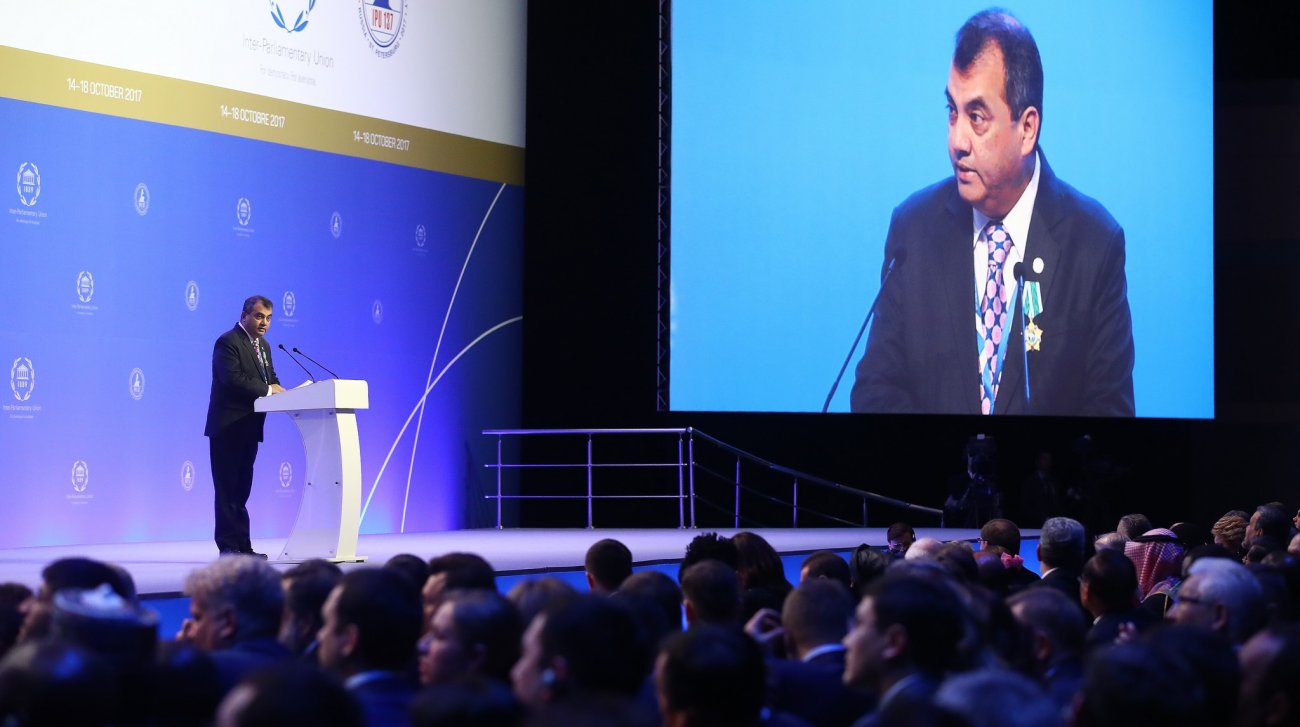
The session was co-organised by PNND, the IPU Standing Committee on UN Affairs and the IPU Standing Committee on Peace and International Security.
Bruce Blair, co-founder of Global Zero and a former nuclear missile controller, outlined the growing risks of a nuclear catastrophe due to increasing tensions and conflicts between USA & North Korea, Russia & the West, and India & Pakistan, combined with the high operational readiness of many of these countries to use nuclear weapons. He noted that the potential of nuclear-weapons-related conflicts escalating into war - and the possibilities of nuclear weapons being used by accident, miscalculation or even intent – are even greater now than during the Cold War.
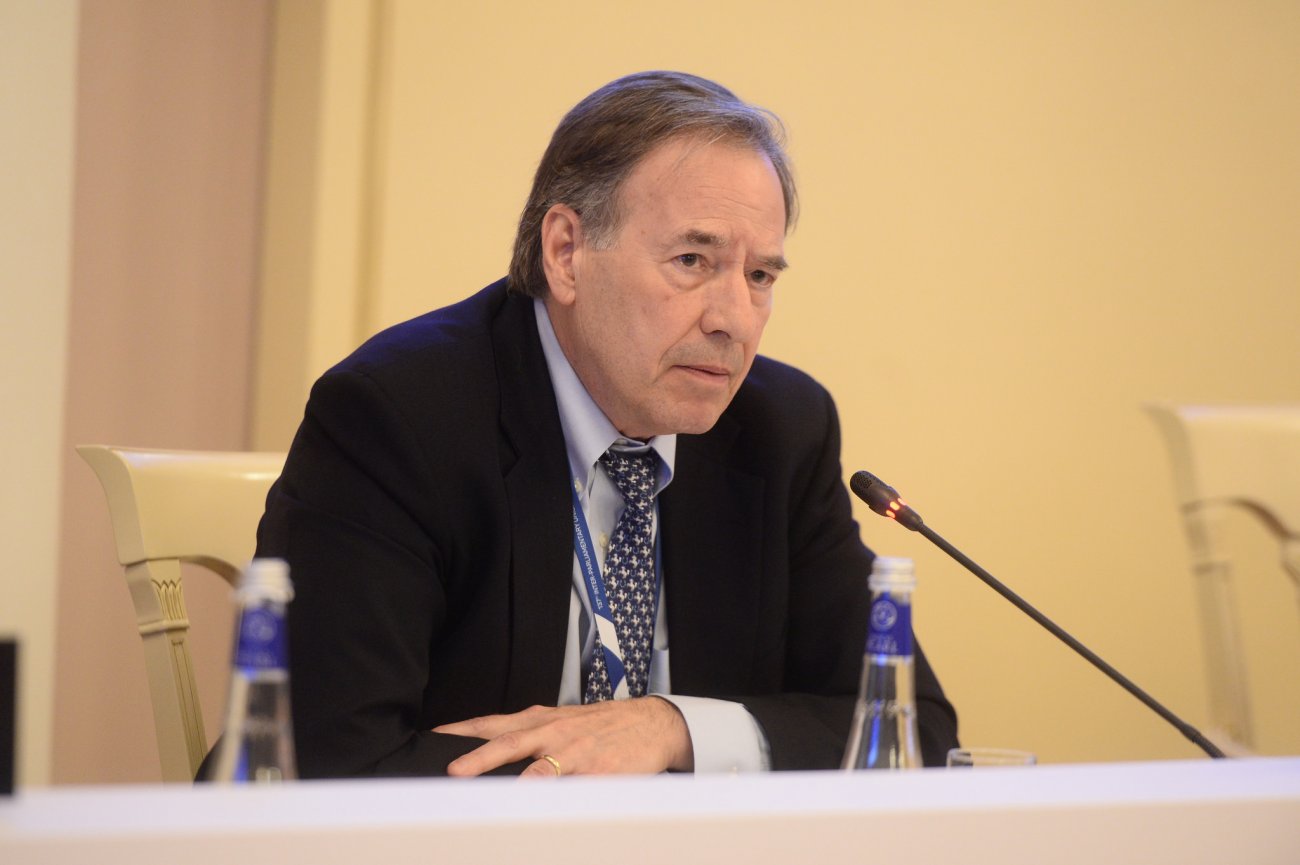
Ambassador Elayne Whyte Gómez, President of the UN negotiating conference for the Treaty on the Prohibition of Nuclear Weapons, updated parliamentarians on the adoption of the treaty on July 7, the number of countries that have signed the treaty to date (53 countries) and the role that parliamentarians have in ratification of the treaty in national legislatures in order to ensure the treaty’s entry-into-force and implementation. She also called on parliamentarians from countries that have not yet signed the treaty, to call on their governments to sign in order to reach 100 signatories as soon as possible.
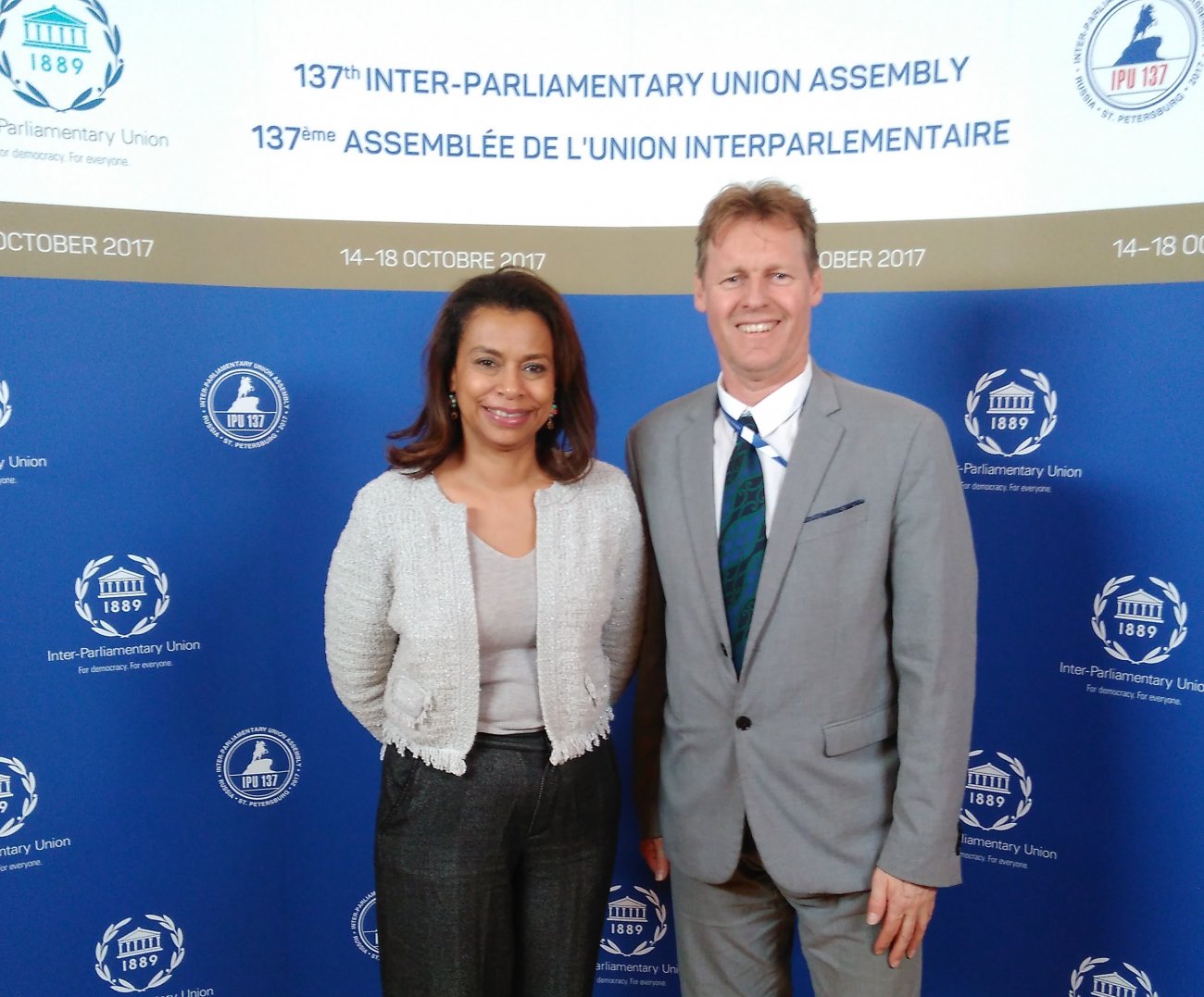
Alyn Ware, global coordinator of Parliamentarians for Nuclear Non-proliferation and Disarmament, highlighted the opportunity to advance nuclear risk-reduction and disarmament measures at the United Nations High-Level Conference on Nuclear Disarmamenthttp://www.unfoldzero.org/2018-un-high-level-conference-on-nuclear-disarmament/ (UNHLC), which will take place at the UN in New York in May 2018. Such UN high-level conferences have been very successful in other areas (sustainable development, climate change, oceans and refugees), and could make a significant contribution to nuclear disarmament. (See UNHLC food-for-thought paper).
Goals proposed for UNHLC could include: achieve 100 signatories to the nuclear ban treaty (many governments could sign at the UNHLC); renew the UN process for a Middle East zone free of nuclear weapons and other weapons of mass destruction; agreements by nuclear armed States to take all nuclear weapons off alert, make further cuts in nuclear stockpiles, give assurances to non-nuclear States that nuclear weapons will not be used against them, commit never to be the first to use nuclear weapons, and outline a framework to achieve a nuclear-weapon-free world.
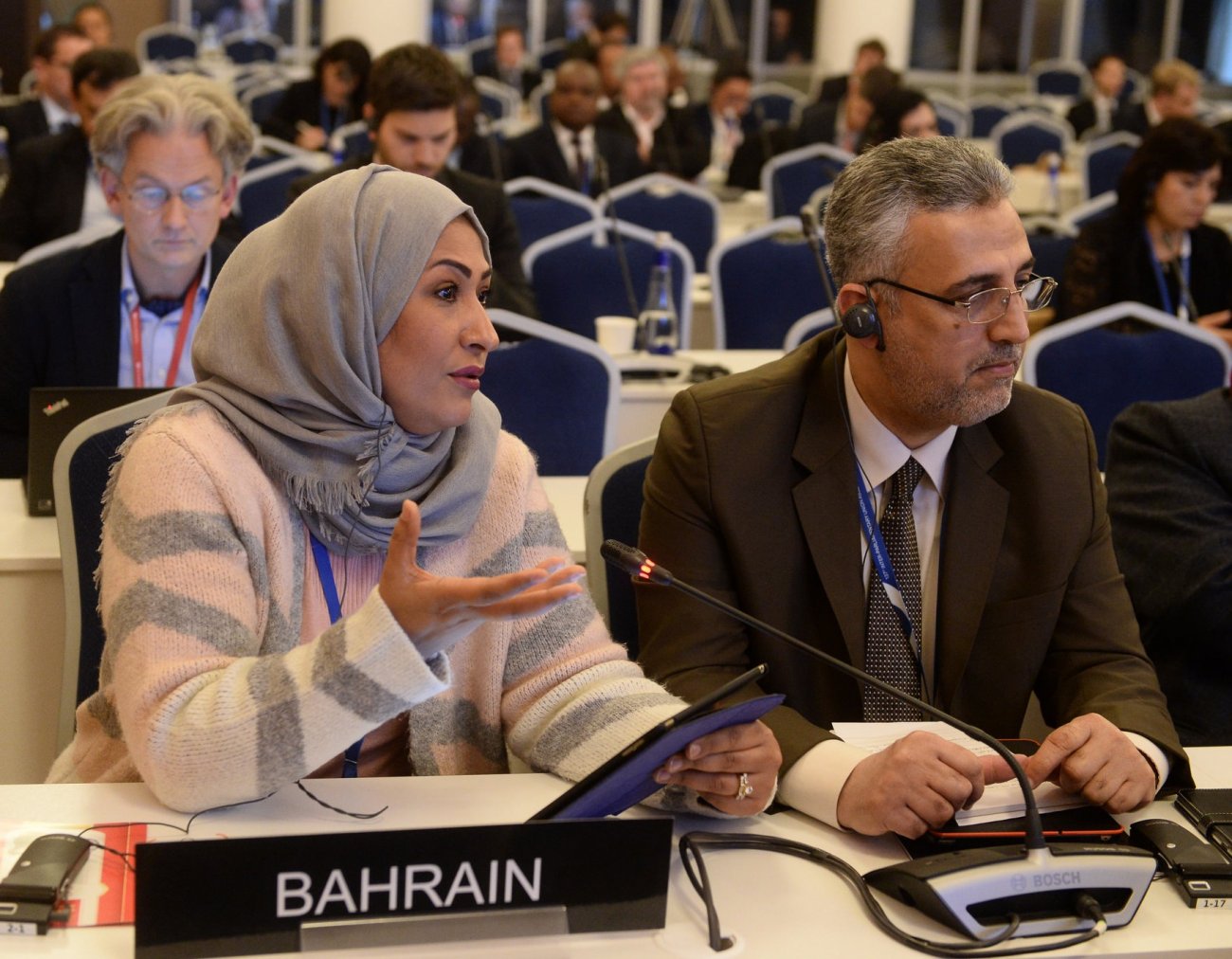
A number of delegations took the opportunity to make comments and ask questions on various aspects of the issue, including: how to strengthen international criminal law against nuclear weapons regardless of whether its use or possession by terrorists or governments, how to engage youth and build a stronger civil society movement for nuclear abolition, how to maintain existing agreements (such as the Joint Comprehensive Plan of Action regarding Iran’s nuclear energy which is under threat from the new USA administration), how to reduce nuclear tensions and build confidence, and how to move the nuclear-armed States to phase out their reliance on nuclear weapons and negotiate a comprehensive agreement on the elimination of nuclear weapons.
The event also included the launch of a new publication - the Parliamentary Action Plan for a Nuclear-Weapon-Free World. The Action Plan, which has been developed by Parliamentarians for Nuclear Nonproliferation and Disarmament in consultation with the Inter-Parliamentary Union (IPU), includes 14 key nuclear disarmament actions that can be taken by parliamentarians.
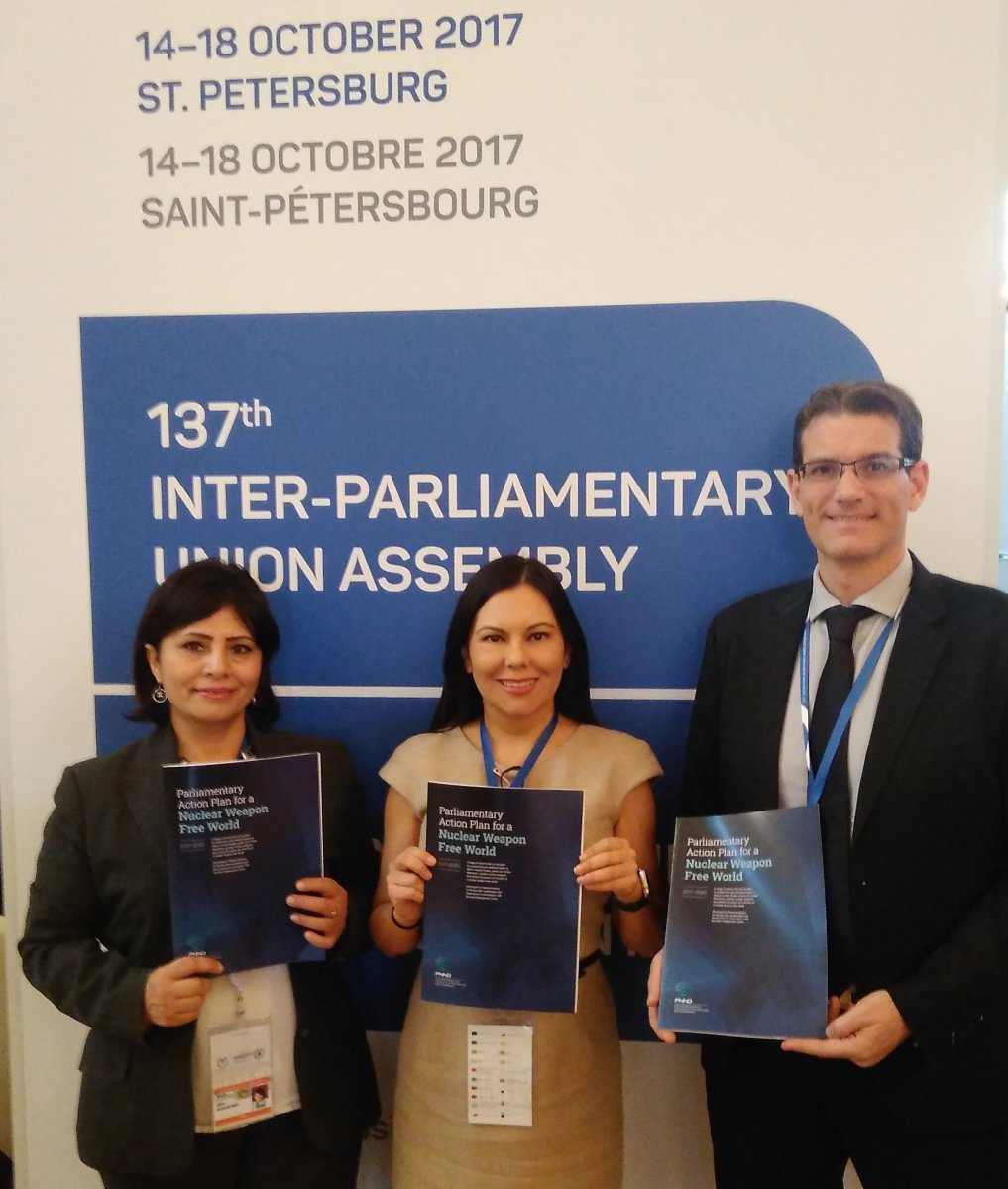
Some of these are actions that parliamentarians from States Parties to the nuclear prohibition treaty can take to implement the treaty in their parliaments. These are all non-nuclear States, as the nuclear-armed and allied States do not currently support the treaty.
Other actions in the Plan are those that parliamentarians from nuclear armed and allied States can take to reduce the risks of nuclear weapons being used, and move their governments to adopt incremental disarmament measures, phase out the reliance on nuclear deterrence and negotiate for nuclear disarmament.
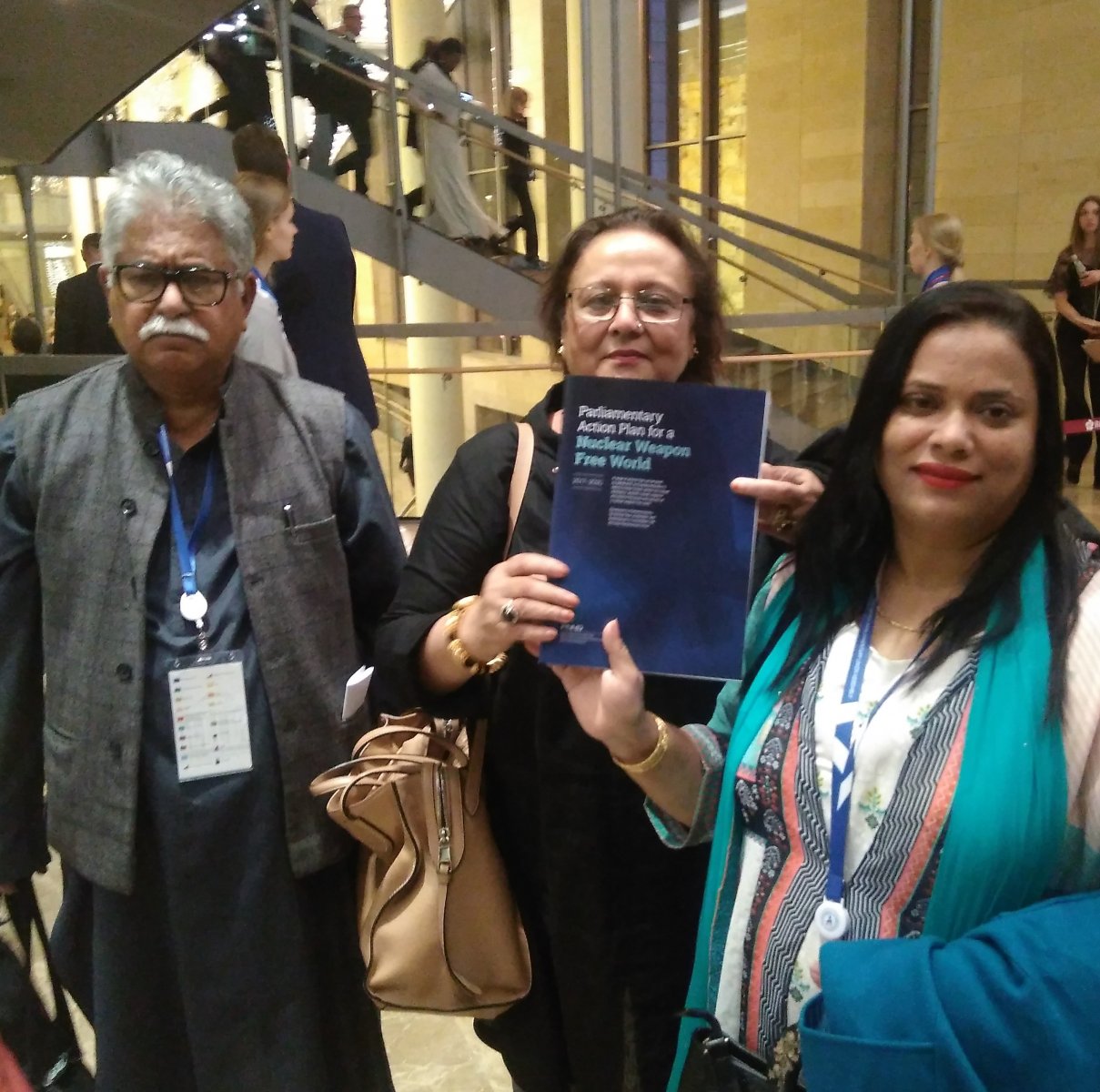
And some actions in the Plan are those that parliamentarians from all States can take to build public awareness and political will for the achievement of a nuclear-weapon-free world.
The plan draws from reports and resolutions on nuclear disarmament adopted by the IPU in 2009 and 2014, as well as resolutions of the Parliamentary Assembly of the Organisation for Security and Cooperation in Europe, and a series of consultations undertaken by PNND in key capitals and UN centres during 2016-2017.
Claudia Roth presentation to 138th IPU Assembly
Air Jordan


